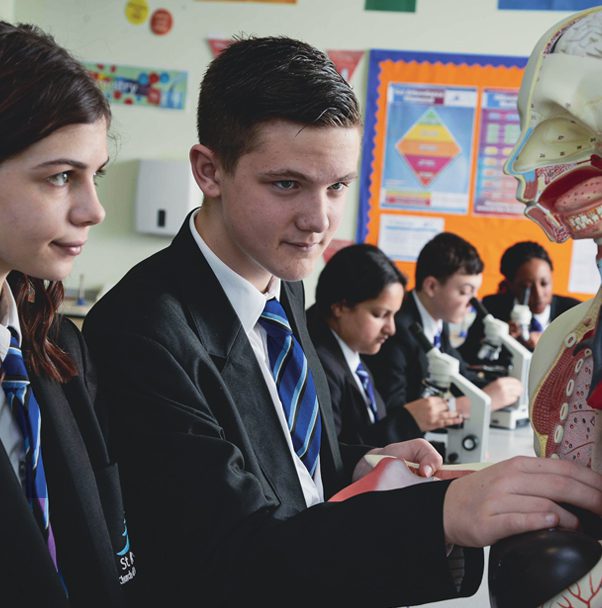CEIAG Policy
Careers Education, Information, Advice and Guidance (CEIAG) Policy
1. Introduction and Statutory Duty:
The Government’s Careers Strategy [2017] sets out a long term plan to build a world class careers system that will help young people and adults choose the career that is right for them. The most recent DfE statutory guidance [2021] expands on the aim set out in the strategy to make sure that all young people in secondary school get a programme of advice and guidance that is stable, structured and delivered by individuals with the right skills and experience. To achieve this aim, the guidance sets out that every school and academy providing secondary education should use the Gatsby Charitable Foundation’s Benchmarks [2014] to develop and improve their careers provision.
This policy is therefore underpinned by the following three documents:
|
|
Careers Strategy
|
|
|
Statutory Guidance
|
|
|
Gatsby Benchmarks
|
|
|
Provider Access Legislation
|
2. CEIAG Policy:
The purpose of our policy is to set out the procedures by which we motivate our young people to prepare them for their future in further education, training or the world of work. We want to give our students the best opportunity to reach their potential, both inside and outside of the classroom. Through a wide ranging programme of activities we want to equip all students with the skills, attitudes and understanding needed to enhance their overall success and wellbeing and contribute to society as responsible citizens.
Our CEIAG programme is embedded throughout the whole of each student’s curriculum from Years 7 to 11. All students receive a rich provision of purposely designed classroom and extra-curricular activities, working in partnership with all stakeholders, to enable them to succeed in his or her future.
3. Related Policies:
Provider Access Policy – St Anne’s Academy (stannesacademy.org.uk)
4. The Role of the Academy:
The Academy secures independent and impartial careers guidance advice for all students. This takes many different forms, including:
Partnership with Independent and Impartial Careers Advisers: In partnership with external agency Positive Steps Careers Advisers, all students will have at least one face to face interview with an independent and impartial adviser in Year 10 and Year 11. The Positive Steps Advisers work with a range of other schools, further education and higher education providers, and work-based training and apprenticeship providers in order to ensure that students have access to a range of options at each stage of their education. All other students can request a one-to-one appointment, regardless of year group
The Baker Clause; Partnership with Colleges and Other Training Providers: In an amendment to the Technical and Further Education act 2017, the Baker clause stipulates that schools must allow colleges and training providers access to every student in Year 8-13 to discuss non-academic routes that are available to them. The Academy will provide at least four encounters with colleges and training providers for all students – two in Year 8/9 and two in Years 10/11. Please refer to the Provider Access Policy on the Academy website.
PSHE Curriculum: PSHE lessons will support the delivery of CEIAG to all students in Years 7-11 and is mapped alongside the Careers Development Institute Framework.
Pastoral Programme: Planned so that it reflects the objectives of the policy to include relevant CEIAG through a range of extra-curricular opportunities, form time activities and pastoral assemblies.
Employer Engagement: The Academy forges links with employers who can help to boost young people’s attitudes and employability skills and inform students about the range of opportunities available. Key events include the Year 10 Work Experience Programme and the Annual Employer Engagement and Careers Festival.
STEM Opportunities: Planned to give students the opportunity to learn about STEM related career pathways. Events include the STEM Road Show and partnership with local Universities.
National Careers Service: Students will have access to on-line advice, including the National Careers Service website. Students will also be advised of the NCS telephone helpline number.
Careers and Enterprise Company: The careers leader will work with the CEC to promote best practice and seek support from the enterprise co-ordinator and enterprise adviser.
Support for Vulnerable Students: The Academy holds transition meetings for the most vulnerable and SEND students. We work in partnership with the Local Authority and parents/carers to support vulnerable young people, including those with special educational needs and those at risk of not participating post-16, to give information about the services that are available to support them.
Prevention of Stereotyping: The Academy will work to prevent all forms of stereotyping in the advice and guidance provided, to ensure that boys and girls from all backgrounds and diversity groups consider the widest possible range of careers, including those that are often portrayed as primarily for one or other of the sexes.
Financial Support: Information will be provided to students about the financial support that may be available to help them progress in further and higher education.
Quality Assurance: The Academy will quality assure careers guidance, including that offered independently, to ensure that students are receiving advice that is impartial and is relevant to their needs, and will address any concerns that might emerge. The Academy only secures careers guidance from external organisations with Matrix accreditation, the quality standard for the guidance sector. The Career Development Institute recommends that all schools should work towards a Quality in Careers Standard (QiCS) nationally validated quality award. The Academy is currently working towards Stage 3 of the Inspiring IAG quality award for CEIAG, which meets the national validation criteria set by the QiCS. The Inspiring IAG award standards provide the Academy with a framework to record, justify and assess CEIAG developments to review and improve practice.
Evaluation of CEIAG Provision: The Academy uses the DfE Destination Measures data and Rochdale Local Authority ‘Moving On’ reports to assess how successfully our students make the transition into the next stage of education, training or employment. The effectiveness of CEIAG provision can also take into consideration the attainment of our students, and quantitative/qualitative feedback from all stakeholders.
5. Policy Review:
This Policy will be reviewed annually and its implementation will be monitored by the Senior Leadership Team.
St Anne's Church of England Academy is proud to be part of the Cranmer Education Trust
Cranmer Education Trust is a company limited by guarantee and an exempt charity registered in England. Company registration number: 07687709. Registered Office: Cranmer Education Trust, c/o The Blue Coat School, Egerton Street, Oldham OL1 3SQ. The website address is www.cranmereducationtrust.com and the phone number 0161 785 5082.








